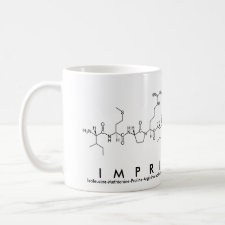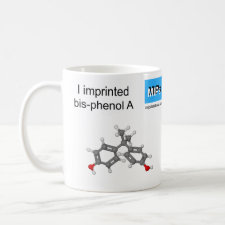
Authors: Li J, Zhang XB, Liu YX, Tong HW, Xu YP, Liu SM
Article Title: Preparation of a hollow porous molecularly imprinted polymer using tetrabromobisphenol A as a dummy template and its application as SPE sorbent for determination of bisphenol A in tap water.
Publication date: 2013
Journal: Talanta
Volume: 117
Page numbers: 281-287.
DOI: 10.1016/j.talanta.2013.09.022
Alternative URL: http://www.sciencedirect.com/science/article/pii/S0039914013007509
Abstract: In this paper, a highly selective sample cleanup procedure combing dummy molecular imprinting and solid-phase extraction (DMIP-SPE) was developed for the isolation and determination of bisphenol A (BPA) in tap water. The novel hollow porous dummy molecularly imprinted polymer (HPDMIP) was prepared adopting a sacrificial support approach, using tetrabromobisphenol A (TBBPA), whose structure was similar to that of BPA, as the dummy template and mesoporous MCM-48 nanospheres as the support. Owing to a very short distance between the binding sites and the surface, a large surface area and a good steric structure to match its imprint molecules, the maximum adsorption capacities (Qmax) of the dummy-imprinted and non-imprinted sorbents for BPA were as high as 445 and 340 μmol g-1, respectively, and the adsorption reached about 73% of Qmax in 10 min. Meanwhile, a method was developed for the determination of BPA using HPDMIP as a solid-phase extraction enrichment sorbent coupled with HPLC. Under the optimum experimental conditions, HPDMIP exhibited satisfactory results in the enrichment and determination of BPA in tap water with a recovery rate of 95-105%, and relative standard deviations of below 6%, and it can achieve a limit of detection as low as 3 ng mL-1. The developed extraction protocol eliminated the effect of template leakage on quantitative analysis and could be applied for the determination of BPA in complicated functional samples
Template and target information: dummy template, tetrabromobisphenol A, TBBPA, bisphenol A, BPA
Author keywords: Hollow porous dummy molecularly imprinted polymer, Solid-phase extraction, bisphenol A, high-performance liquid chromatography



Join the Society for Molecular Imprinting

New items RSS feed
Sign-up for e-mail updates:
Choose between receiving an occasional newsletter or more frequent e-mail alerts.
Click here to go to the sign-up page.
Is your name elemental or peptidic? Enter your name and find out by clicking either of the buttons below!
Other products you may like:
 MIPdatabase
MIPdatabase









